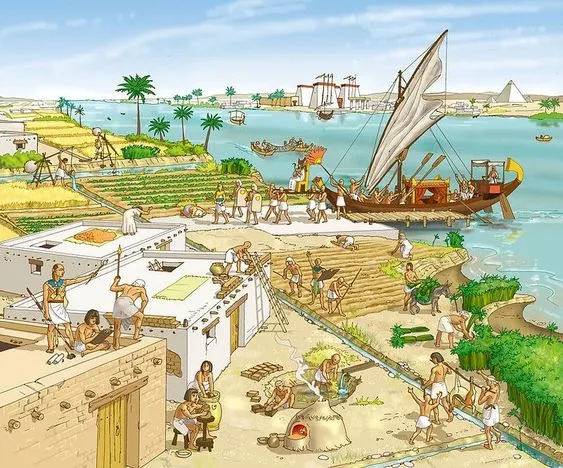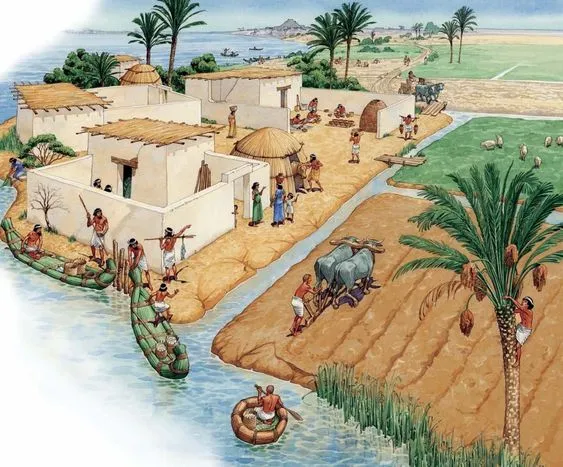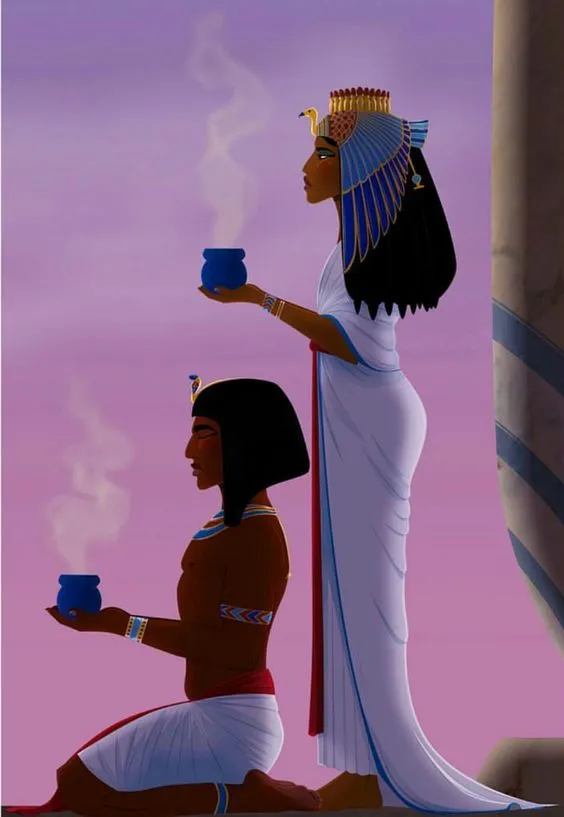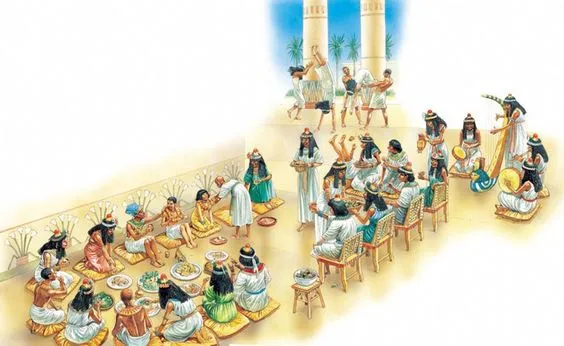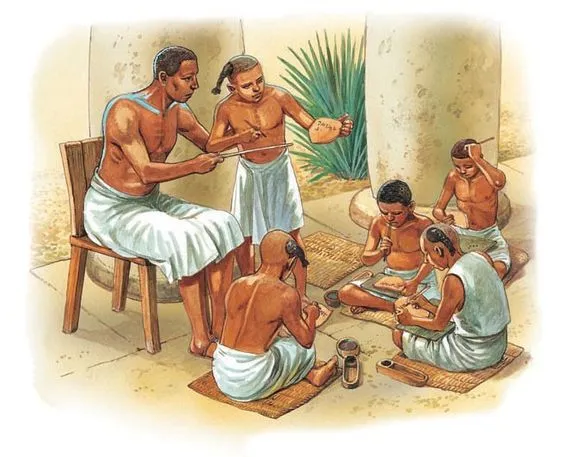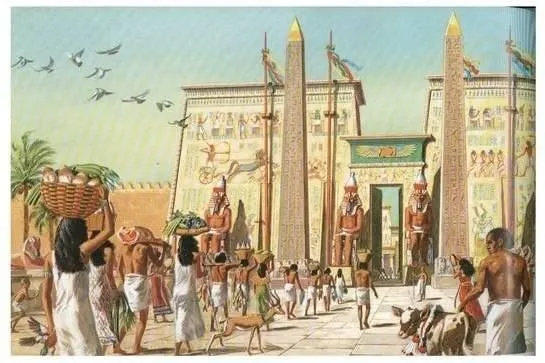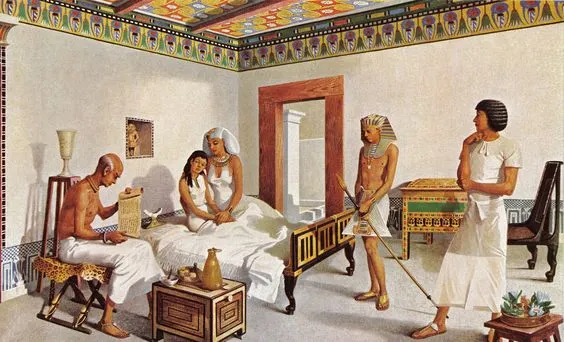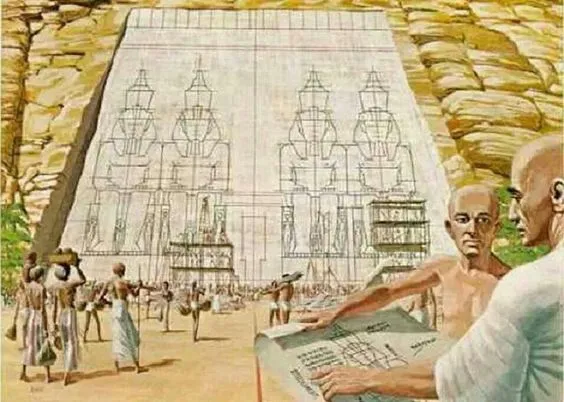

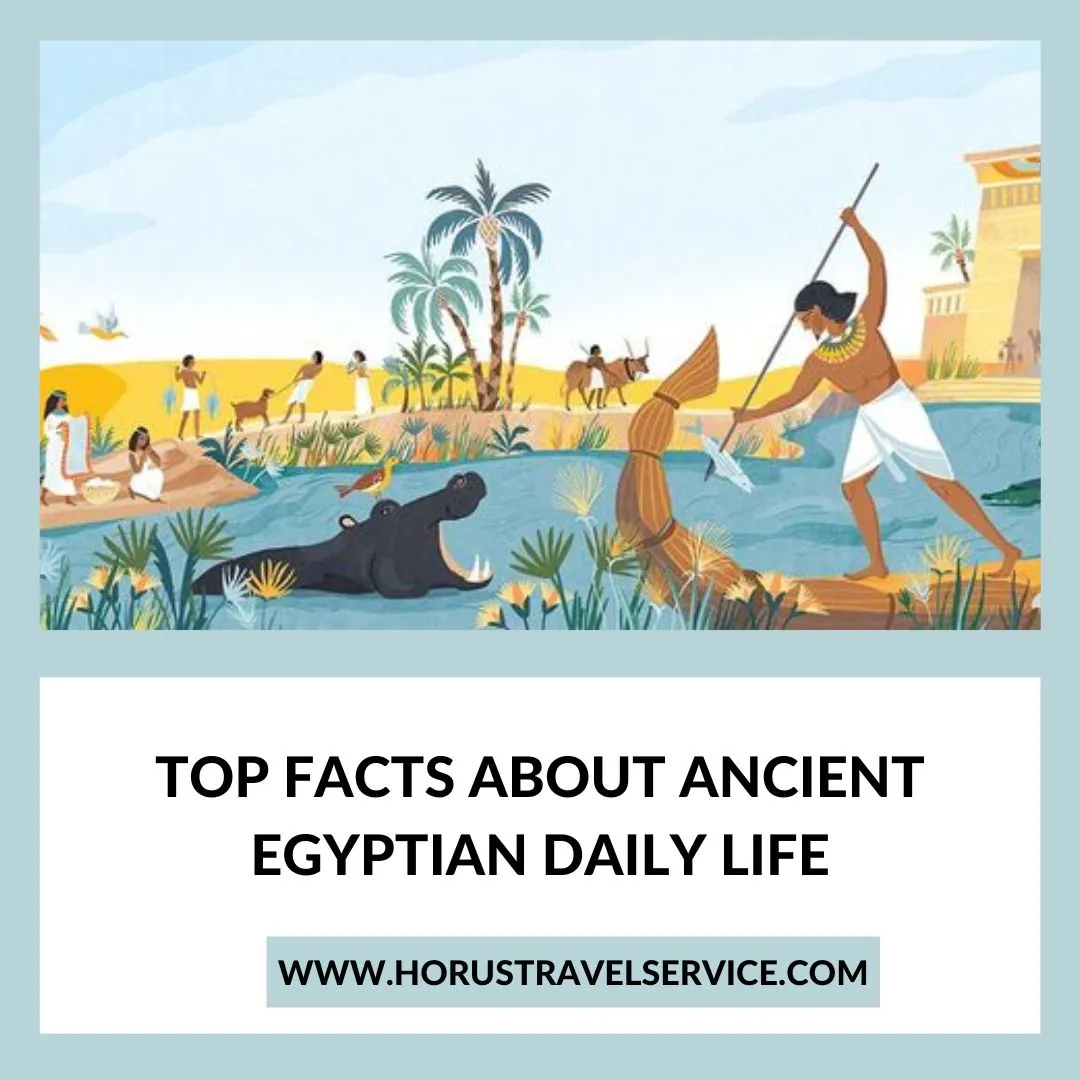
2024-08-12 15:46:41
Top Facts About Ancient Egyptian Daily Life
You are about to become very intimate with the daily lives of the Ancient Egyptians—into what daily life was like beyond those pyramids and temples, into everyday routines, roles, and realities for common people in this ancient civilization. Ancient Egyptians' lives were full of variety, a close association with the land and its rhythmic beats. Let's get deeper into the day-to-day of this fascinating culture.
The Nile: Egypt's Lifeblood
The Nile River was central to daily life in Ancient Egypt. It gave all the important things necessary for daily life, including water, and consequently allowing for agriculture and a transportation route. Because of the yearly flooding of the Nile, a lot of nutrient-rich silt would be left on the land, allowing the Egyptians to raise crops of wheat and barley. Farming was the backbone of the economy, and the agricultural calendar was closely tied to these cycles of the river.
Housing and Living Conditions
Various social classes were reflected in the abodes of ancient Egyptians. Common homes in rural areas usually had simple mud-brick houses with flat roofs and small courtyards. Such homes would have only a few rooms for sleeping, cooking, and living. Richer Egyptians, mainly residing in urban centers like Thebes and Memphis, inhabited bigger and fancier houses, having a number of rooms with decorative furnishings and gardens.
Clothing and Appearance
In Ancient Egypt, the clothing was usually made of lightweight linen in the hot desert; therefore, men almost always appeared in kilts or loincloths, while women wore simple dresses with shoulder straps. Wealthier Egyptians decorated themselves with jewelry made of gold, beads, or precious stones. Even cosmetic use like eye paint or perfume was part of the daily grooming routine of both men and women.
Food and Drink
Basically, Ancient Egyptians survived on bread and rice and foods made of wheat and barley , which formed staple foods. They supplemented these basic foods with several vegetables like onions, leeks, and garlic, together with fruits dates and figs. A little meat and fish was consumed and mainly taken during special occasions. The food was prepared by women in the home, and very often, it was shared with members of the immediate family.
Education and Literacy
Education was a major part of the lives of most of the aristocratic members, where many a time the boys were educated in reading, writing and mathematics, and on the other hand, girls would be educated at home. The scribes would be taught in a way that they could read and write the hieroglyphics; they had a much-needed role in administration and record maintenance. Although literacy was admired and maintained, it was for a small and particular group of people.
Religious practices
Religion extended into every facet of life: both in the simple and complex acts of ritual practices and ceremonies to propitiate their gods. Gods were worshiped in small shrines within the house, where daily offerings of food and drinks were provided. Public and great festivals, such as in honor of a certain god Osiris or Ra, were accompanied by public festivities, processions, and temple rituals.
Health and Medicine
Health and medicine were very important aspects of everyday life. The ancient Egyptians displayed a surprisingly high level of knowledge of medicine back in the day, as they made use of herbs and even performed surgical operations to help alleviate certain ailments. Physicians, many of whom were trained in this art of medicine, contributed importantly to health maintenance. Hygiene was practiced, with bathing, facilitated by access to water from the Nile.
Work and Occupations
Most Egyptians engaged in agriculture: they tilled the land and produced crops and raised livestock. Farmers were crucial to the economy, for they had to work on the land during both the flood season and the growing season. In towns and cities, people were involved in many different trades and crafts, such as making pots, weaving cloth, and metalwork. The builders and sculptors were skilled artisans who built and decorated temples and tombs.
And if now your thoughts are about Egypt, you just might want to take a trip into the breathtaking beauty of timelessness and ancient mysteries in the leadership of safekeeping Horus Travel service.
Book your ideal tour now!

Newsletter
Sign up to receive the best offers


